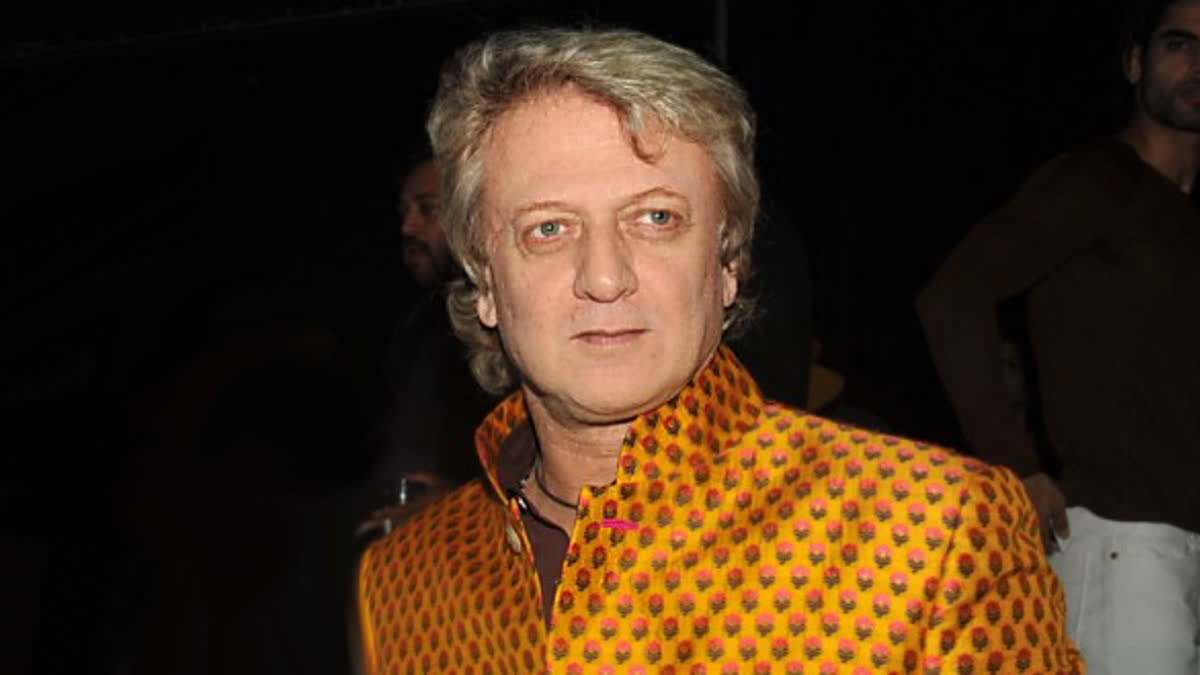Hyderabad: Rohit Bal, a fashion designer and fierce advocate for the LGBTQ+ community, recently passed away, leaving a powerful legacy. Affectionately known as Gudda, Bal once criticised Bollywood for misrepresenting gay characters and underpaying designers, sparking important discussions on authenticity and accountability. The Fashion Design Council of India honoured him as a transformative figure who bridged traditional and modern Indian fashion. Just two weeks before his passing, he presented his final collection at Lakme Fashion Week, cementing his iconic status.
Bal's journey in the fashion world began in 1986 with Orchid Oversea Pvt. Ltd., a venture he started alongside his brother. In 1990, he presented his first solo collection, quickly making a name for himself through designs that transcended gender boundaries and resonated universally. A long-time advocate for LGBTQ+ rights, Bal was known for challenging stereotypes, particularly those perpetuated in Bollywood's portrayal of gay characters. His words in a 2013 interview continue to resonate: "Bollywood makes gays appear feminine, idiotic, and abnormal. I strongly resent it. We need to portray the true lives of gays in India."
Bal's comment about Bollywood didn't stop there. He was vocal about his disappointment that few stars dared to portray gay characters sincerely. "No star has the real courage to play a gay character. If they do, no one will accept them," he had said. This perspective pushed him to make a film, without big-name actors, intending to challenge Bollywood's cliched depictions and create a narrative that celebrates the LGBTQ+ community authentically. Alongside this project, Bal was working on two books - one focusing on his views on fashion and craftsmanship and the other a pictorial journey through his experiences and vision.
For Bal, the challenges within the LGBTQ+ community extended beyond Bollywood portrayals; he often highlighted the struggle for acceptance within families. "I see parents leaving their kids because they are gay… It is really sad," he shared, highlighting the difficulties faced by many. Having been open about his own orientation, Bal believed that personal authenticity was vital in combatting social prejudices. "The moment we feel closeted, the world gets closeted for us," he said, crediting his own acceptance to his liberal family.
Bal's outspokenness also touched on Bollywood's interactions with the fashion industry, especially regarding issues of payment and authenticity. In 2018, he expressed frustration over celebrities' reluctance to pay designers for their work. In a since-deleted Facebook post, he wrote, "Bollywood and the disparate costumes it generates... do not represent contemporary Indian fashion." He criticised Bollywood for often misleading the public into viewing costumes as genuine fashion. "These are merely costumes specifically designed to style a script… unfortunately, mass adulation that blindly follows this as relevant Indian fashion needs to be addressed."
Bal also questioned why designers are often expected to provide red-carpet attire for free, with the only compensation being exposure. "Designers with turnovers less than half the daily fee of these celebrities are expected to provide creations for red-carpet appearances in exchange for publicity. My question is... why can't these celebrities pay for what they wear like everyone else, and why are designers succumbing to this for momentary mileage?" This trend, he argued, was regressive and hindered the purpose of genuine fashion. "Fashion publications should present fashion trends, styles, and accessories… Bollywood has become the biggest player in an arena of misplaced advertising values," he concluded.
Bal's legacy in the fashion world is multifaceted. He is celebrated as a master designer who combined traditional Indian motifs with modern aesthetics, and as an icon in the LGBTQ+ community who advocated for accurate and dignified representation. His views, both on Bollywood's portrayal of gays and on its skewed relationship with fashion, reflect his commitment to authenticity and his refusal to compromise on principles. Rohit Bal's voice and vision will continue to echo, and his absence leaves an unforgettable void in Indian fashion and cultural discourse.
READ MORE



